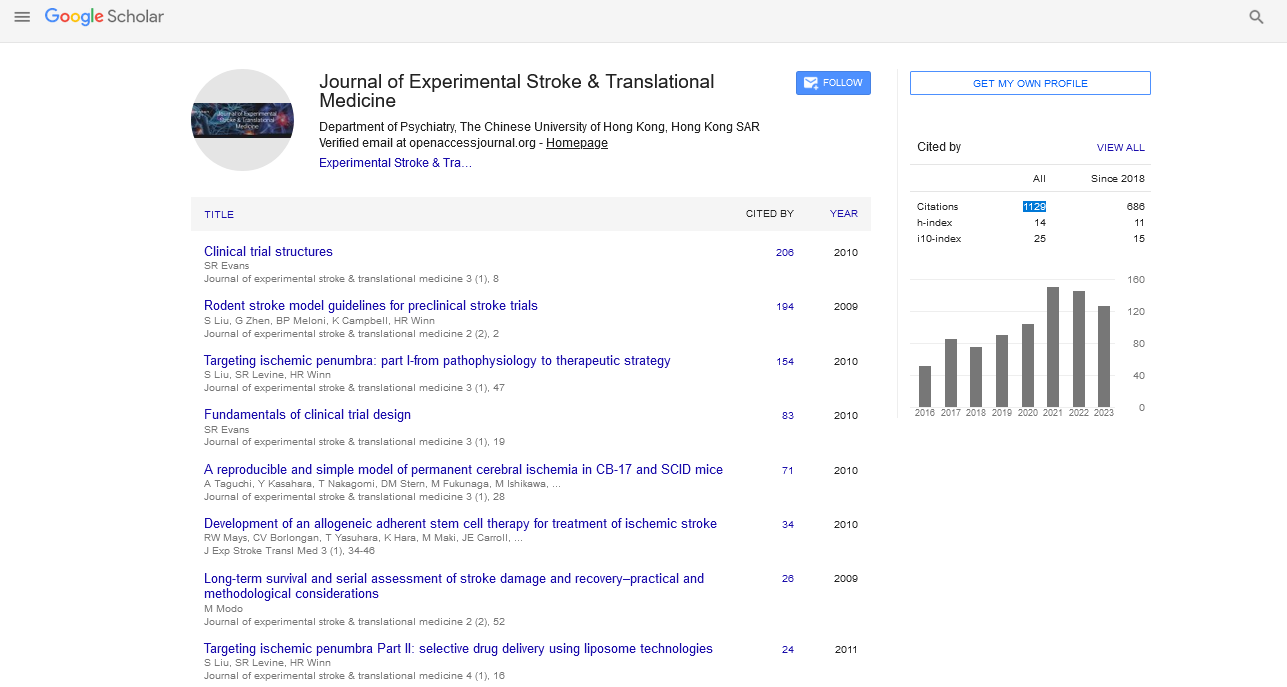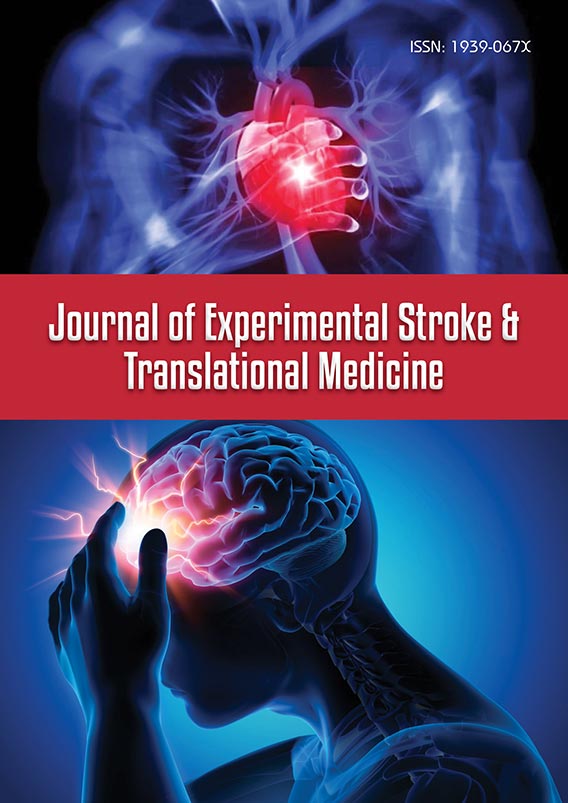Perspective - Journal of Experimental Stroke & Translational Medicine (2024) Volume 16, Issue 5
Personalized Medicine: Tailoring Healthcare to the Individual
- Corresponding Author:
- Prasan Kumar Sahoo
Department of Primary Healthcare,
Andhra University,
Vishakhapatnam,
India
E-mail: Prasan.k.sahoo@mail.cgu.edu.tw
Received: 06-Sep-2024, Manuscript No. jestm-24-147535; Editor assigned: 11-Sep-2024, PreQC No. jestm-24-147535 (PQ); Reviewed: 24-Sep-2024, QC No. jestm-24-147535; Revised: 01- Oct-2024, Manuscript No. jestm-24-147535 (R); Published: 28-Oct-2024, DOI: 10.37532/jestm.2024.16(5).271-272
Introduction
Personalized medicine represents a paradigm shift in healthcare, emphasizing the customization of medical treatments and interventions based on individual characteristics. Unlike the traditional one-size-fits-all approach, personalized medicine uses a patient’s unique genetic, environmental and lifestyle information to tailor treatments, improve efficacy and minimize adverse effects. This article delves into the principles of personalized medicine, its applications, benefits, challenges and future directions.
Description
Principles of personalized medicine
Personalized medicine operates on several foundational principles.
Genomic information: By analyzing an individual’s genome, clinicians can identify genetic variations that influence disease risk, drug metabolism and treatment responses.
Genomic data is obtained through technologies such as whole-genome sequencing or targeted gene panels, which provide insights into genetic predispositions and mutations.
Environmental and lifestyle factors: Personalizing medicine also involves considering environmental exposures and lifestyle choices that affect health outcomes.
This includes factors such as diet, physical activity, exposure to pollutant and social determinants of health, which are integrated into treatment plans alongside genetic information.
Targeted therapies: Personalized medicine often utilizes targeted therapies that specifically address the molecular mechanisms underlying a patient’s condition.
Targeted therapies are designed to interact with specific genetic mutations or proteins involved in disease, offering more precise and effective treatment options compared to conventional therapies.
Data integration and analysis: Personalized medicine relies on the integration and analysis of complex data sets, including genetic, clinical and lifestyle information.
Advanced computational tools and bioinformatics are used to analyze and interpret data, guiding clinical decision-making and treatment planning.
Applications of personalized medicine
Personalized medicine has a wide range of applications across various fields.
Oncology: In cancer treatment, personalized medicine is used to identify specific genetic mutations in tumors, allowing for the selection of targeted therapies. For example, patients with HER2-positive breast cancer may benefit from targeted therapies like trastuzumab (Herceptin).
This approach can improve treatment efficacy, reduce side effects and help identify patients who are likely to benefit from specific drugs.
Cardiology: Personalized medicine is sed to assess genetic risk factors for cardiovascular diseases and guide treatment decisions. For instance, patients with specific genetic variants may receive tailored recommendations for statin therapy or other cardiovascular interventions.
Personalized approaches can enhance preventive measures, optimize drug dosing and improve management of cardiovascular conditions.
Pharmacogenomics: Pharmacogenomics studies how genetic variations affect an individual’s response to drugs. Personalized medicine uses this information to select medications and dosages that are most effective and least likely to cause adverse reactions.
This approach can minimize trial-and-error prescribing, reduce the risk of drug interactions and improve overall treatment outcomes.
Rare diseases: For rare genetic disorders, personalized medicine provides opportunities for early diagnosis and targeted treatments based on specific genetic mutations.
Advances in genomic sequencing and genetic therapies offer hope for patients with rare conditions who previously had limited treatment options.
Preventive medicine: Personalized medicine can be used to assess individual risk factors for diseases and implement preventive measures. For example, genetic testing can identify individuals at high risk for conditions like diabetes or cancer, allowing for early interventions and lifestyle modifications.
Personalized prevention strategies can reduce the incidence of diseases and promote healthier lifestyles tailored to individual risk profiles.
Benefits of personalized medicine
Personalized medicine offers several advantages over traditional approaches.
Enhanced efficacy: By tailoring treatments to the individual’s unique characteristics, personalized medicine can enhance the efficacy of therapies and achieve better clinical outcomes.
Reduced adverse effects: Personalized medicine minimizes the risk of adverse drug reactions by selecting therapies based on individual genetic profiles and drug metabolism.
Improved patient experience: Tailoring treatments to individual needs can lead to more effective and efficient care, improving the overall patient experience and satisfaction.
Optimized resource utilization: Personalized medicine can optimize the use of healthcare resources by focusing on interventions that are most likely to benefit individual patients.
Future directions
The future of personalized medicine holds exciting possibilities.
Advancements in genomics: Continued advancements in genomic sequencing technologies and bioinformatics will enhance the precision and scope of personalized medicine.
Integration with artificial intelligence: The integration of Artificial Intelligence (AI) and machine learning will enhance data analysis, predictive modeling and decision-making in personalized medicine.
Global collaboration: International collaboration and data sharing will drive advances in personalized medicine and promote global health equity.
Conclusion
Translational medication addresses a crucial change in perspective in medical care, overcoming any barrier between logical disclosure and clinical practice. By encouraging cooperation, development and customized approaches, it holds the commitment of changing the scene of medication, offering new expectation and further developed results for patients around the world. As we explore the intricacies and difficulties ahead, the continuous obligation to making an interpretation of logical information into substantial advantages highlights its crucial job in molding the eventual fate of medical care.

